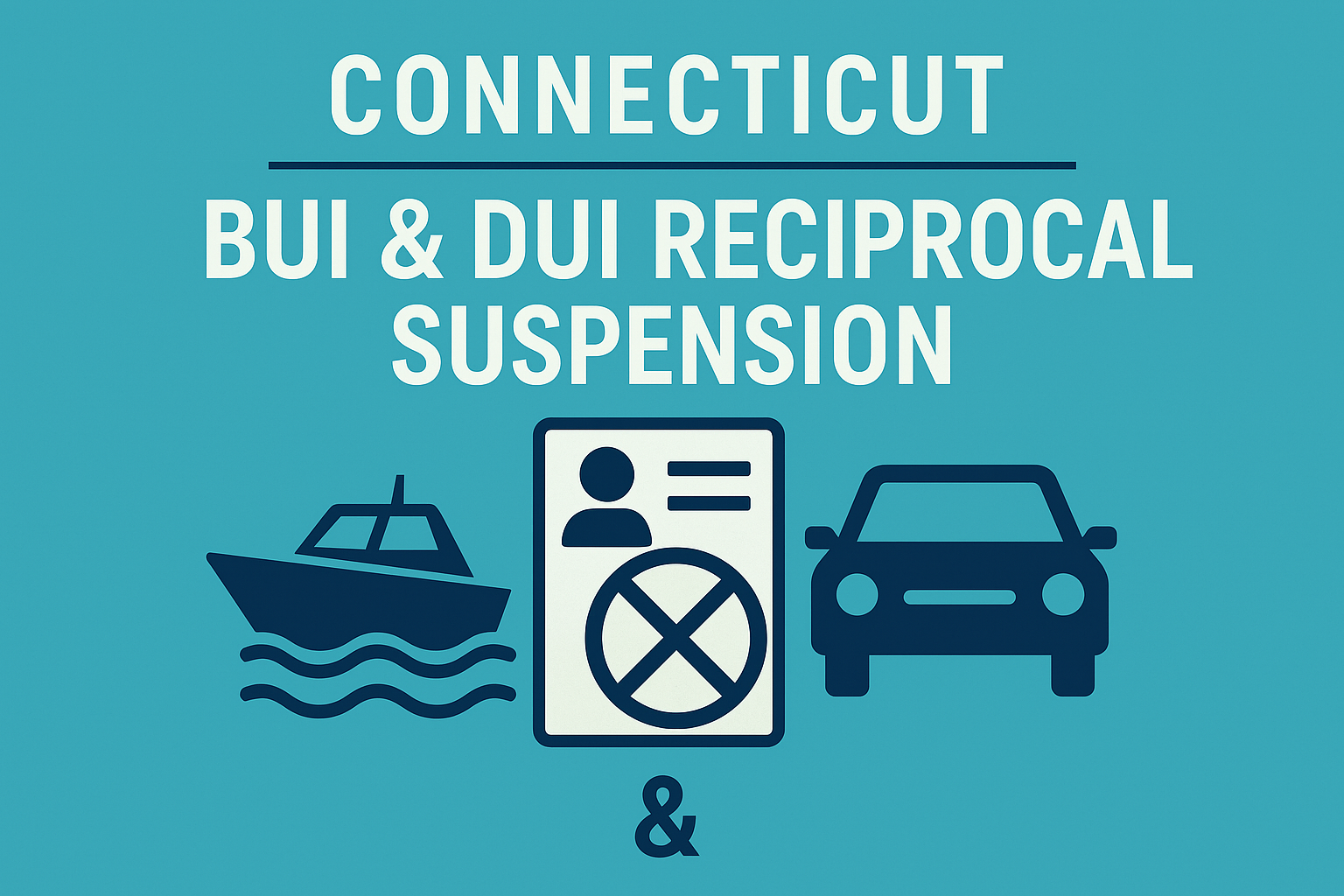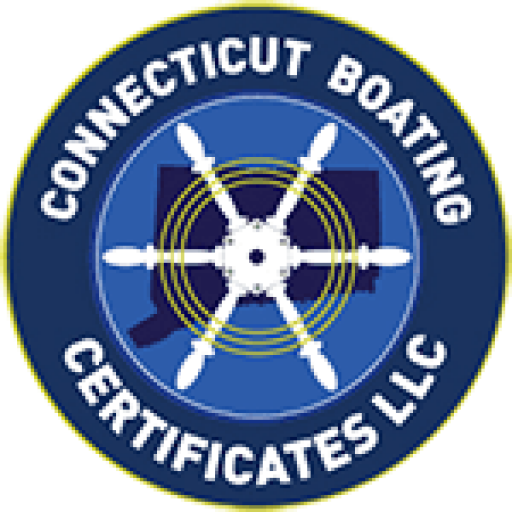Call: 1-800-832-7191
BUI & DUI Reciprocal Suspension

Connecticut BUI & DUI Reciprocal Suspension: What Boaters and Drivers Must Know
Connecticut BUI & DUI reciprocal suspension laws now link boating and driving offenses more closely than ever. If you’re convicted of Boating Under the Influence (BUI) or Driving Under the Influence (DUI), your credentials across both domains will be suspended. This change reflects Connecticut’s commitment to safety on both roads and waterways. Understanding how these laws work can help you avoid serious consequences.
What Is a Reciprocal Suspension?
A reciprocal suspension means penalties apply across different types of licenses. For example, a DUI conviction will suspend your boating certificate. Likewise, a BUI conviction will suspend your driver’s license. This new approach ensures accountability regardless of the vehicle operated. It also discourages offenders from switching between land and water to avoid penalties.
The law applies to both criminal convictions and administrative per se violations. These include failing or refusing a chemical alcohol test. If you’re arrested and found guilty, expect your privileges to be suspended across the board.
Connecticut BUI & DUI Reciprocal Suspension: Legal Framework
Connecticut General Assembly passed legislation in 2025 to enforce reciprocal penalties. The law covers driver’s licenses, boating certificates, and personal watercraft credentials. It applies to all age groups and includes first-time and repeat offenders. [AN ACT IMP…MOTOR …]
Under this law, the Department of Motor Vehicles (DMV) and Department of Energy and Environmental Protection (DEEP) coordinate enforcement. If you’re convicted of DUI, the DMV will suspend your boating certificate. If you’re convicted of BUI, DEEP will notify DMV to suspend your driver’s license.
This integrated system improves public safety. It also ensures that impaired operation—whether on land or water—has serious consequences. The law went into effect on October 1, 2025, and applies to all new cases moving forward. [CT EnCon P…oating …]
Penalties and Restoration Requirements
Penalties vary depending on the offense and number of prior convictions. First-time offenders face a 45-day suspension. Repeat offenders may face longer suspensions or permanent revocation. [Driving Un…s | CT.gov]
To restore your credentials, you must install an Ignition Interlock Device (IID) for DUI-related suspensions. For BUI, you may need to complete a boating safety course. Restoration also requires payment of fees and compliance with all court orders.
If you refuse a chemical test, the suspension period increases. Refusal is treated as a serious offense under Connecticut’s Implied Consent Law. You must request a hearing within seven days of receiving your suspension notice. Failing to do so can delay restoration.
Connecticut BUI & DUI Reciprocal Suspension: Why It Matters
This law sends a clear message: impaired operation is dangerous, no matter the vehicle. Boaters and drivers must take responsibility for their actions. The reciprocal suspension law closes loopholes and strengthens enforcement.
It also promotes safer waterways and roads. By linking penalties, Connecticut ensures that offenders cannot escape consequences by switching modes of transportation. This unified approach protects everyone—passengers, pedestrians, and fellow boaters.
If you operate a boat or drive a car in Connecticut, stay informed. Know your rights, understand the penalties, and avoid impaired operation. Prevention is always better than restoration.
Enjoying this blog…view all of our Boaters Blogs.
